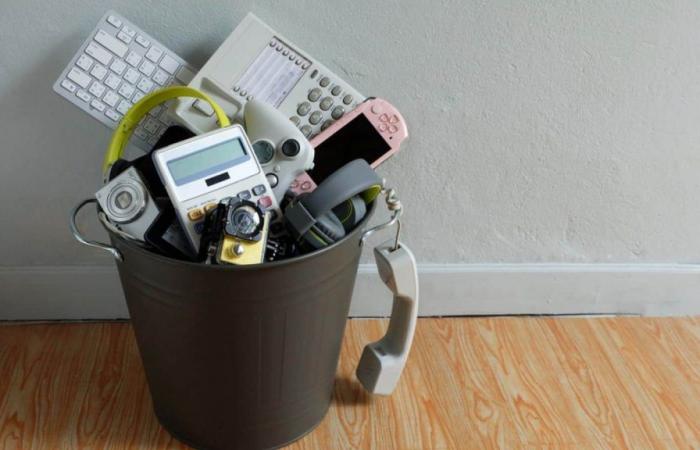Against all expectations, the last one 2023 did not achieve optimal results regarding the collection of electronic wastethose that are defined WEEE. According to what is reported in the annual report which concerns just last year, there are several negative numbers which particularly concern Italy.
All the tons of domestic and professional waste that were managed by the designated plants represent 4.6% less than in 2022. The collection rate is therefore stable and indeed reduced to 30.24%with Italy therefore increasingly distancing itself from the objectives imposed by Europe.
The situation therefore seems to be very precarious, also in light of the increase in electronic material. In fact, there are many consumers who currently use devices of this type and therefore the replacement is increasingly constant. Attention will therefore necessarily have to increase.
WEEE 2023: Italy’s results are lower than the previous year
The following are words from Fabrizio Longoni
general director of the WEEE Coordination Centre:
“Unfortunately, the 2023 Management Report highlights a decrease in the overall volumes of WEEE treated, observes Fabrizio Longoni, general director of the WEEE Coordination Centre. This leads to a further decline in the collection rate of electronic waste, moving our country away from the objectives established by the European Union. Despite this, the supply chain has continued to operate with increasing qualitative excellence year after year.
The WEEE treatment sector continues to suffer from a deficit in collection volumes, partly due to the incorrect management of this waste by operators who do not comply with the law. However, we are confident that the recently renewed Supervisory and Control Committee will quickly implement the necessary controls through the relevant bodies to combat this phenomenon. This is particularly important in light of the investments required by the EU in new infrastructure and the growing need for autonomy in the supply of critical raw materials through recycling“.






